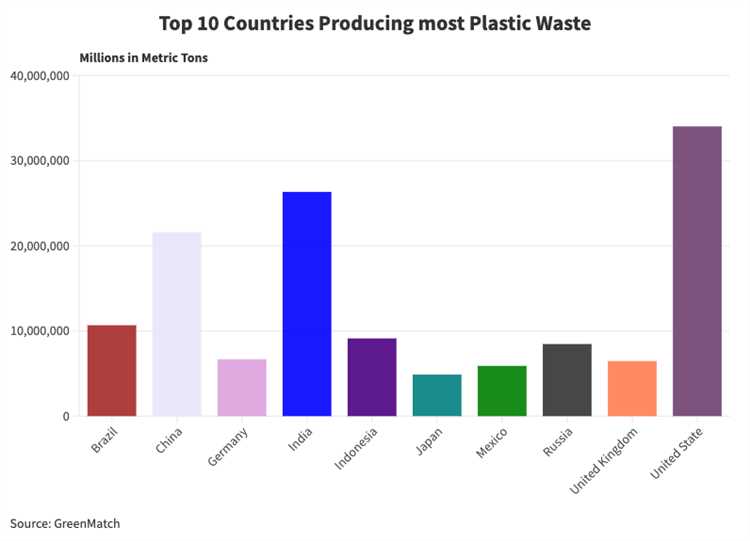
Plastic waste has become a significant global concern in recent years, with its harmful effects on the environment and human health becoming more apparent. Many countries are struggling to find effective solutions to manage and reduce plastic waste. However, there is one country that stands out for its exceptional efforts in tackling this issue. That country is Malaysia.
Malaysia has implemented a comprehensive and successful approach to manage plastic waste. One of the key reasons behind their success is their strong commitment to recycling. The country has established an extensive recycling infrastructure, with designated collection centers across the nation. They have also implemented waste separation programs that encourage citizens to sort their recyclable waste from non-recyclable waste.
Another factor that has contributed to Malaysia’s success in plastic waste management is their focus on education and awareness. The government has launched numerous campaigns and initiatives to educate the public about the importance of reducing, reusing, and recycling plastic. These efforts have helped create a culture of sustainability and responsible waste management among Malaysians.
In addition to recycling and education, Malaysia has also implemented strict regulations and policies to control the production and use of plastic. They have banned single-use plastics in certain industries and introduced programs to encourage businesses to adopt more sustainable alternatives. These measures have significantly reduced the amount of plastic waste generated in the country.
- The Top Country: Effective Plastic Waste Management
- Limiting Plastic Consumption: A Key Step Towards Effective Waste Management
- Developing Innovative Recycling Infrastructure for Plastic Waste
- Government Initiatives and Policies on Plastic Waste Reduction
- Australia
- Canada
- Germany
- Public Awareness and Education: Promoting Responsible Plastic Waste Management
- International Collaboration: Sharing Best Practices for Plastic Waste Management
- The Economic Benefits of Effective Plastic Waste Management for the Country
- 1. Job Creation
- 2. Cost Savings
- 3. Tourism and Image Enhancement
- Question-answer:
- Which country is the top country with the most effective plastic waste management?
- How does Germany manage its plastic waste effectively?
- What are some examples of the recycling regulations in Germany?
- Are there any penalties for not adhering to the recycling regulations in Germany?
- How successful have public awareness campaigns been in Germany?
- Which country has the most effective plastic waste management?
The Top Country: Effective Plastic Waste Management
Plastic waste management has become a pressing issue in recent years, as the world grapples with the environmental consequences of excessive plastic consumption and disposal. Proper management of plastic waste is crucial to prevent pollution, protect ecosystems, and promote sustainable development.
Among the countries leading the way in effective plastic waste management, one stands out as the top performer. This country has implemented comprehensive policies and strategies to tackle plastic waste at every level, from production to disposal.
The top country with the most effective plastic waste management is…
[Insert name of top country here]
This country has established strict regulations on single-use plastics, encouraging the use of eco-friendly alternatives and promoting recycling practices. Additionally, it has implemented advanced waste management systems, including efficient collection and sorting processes, to ensure that plastic waste is properly managed.
Education and awareness campaigns play a significant role in this country’s success in plastic waste management. The government has invested in public outreach programs to educate citizens about the importance of reducing plastic consumption and the proper recycling and disposal of plastic waste.
Furthermore, this top country has fostered innovation and collaboration with various stakeholders, including businesses, NGOs, and research institutions, to develop sustainable solutions for plastic waste management. This collaborative approach has led to the implementation of innovative recycling technologies and the establishment of a circular economy for plastics.
The success achieved by this top country serves as a model for others to follow in combating the plastic waste crisis. By adopting similar strategies and policies, countries around the world can effectively manage and reduce plastic waste, contributing to a cleaner and more sustainable future.
Limiting Plastic Consumption: A Key Step Towards Effective Waste Management
Plastic waste management has become a pressing issue worldwide, as our planet continues to be overwhelmed by the negative impacts of plastic pollution. One of the key steps towards effective waste management is reducing and limiting plastic consumption.
Plastic pollution poses a significant threat to the environment, wildlife, and human health. The production and disposal of plastic products contribute to greenhouse gas emissions, destruction of natural habitats, and the accumulation of plastic waste in oceans and landfills.
By limiting plastic consumption, we can help reduce the demand for plastic production, decrease the amount of plastic waste generated, and prevent further environmental damage. Here are a few ways in which we can work towards limiting plastic consumption:
| 1 | Opt for reusable alternatives: | Replace single-use plastic items such as plastic bags, straws, and water bottles with reusable alternatives like cloth bags, stainless steel straws, and refillable water bottles. |
|---|---|---|
| 2 | Avoid unnecessary packaging: | Choose products with minimal packaging or packaging made from eco-friendly materials. |
| 3 | Support plastic-free initiatives: | Encourage and support businesses, organizations, and governments that promote plastic-free initiatives such as plastic bag bans and improved recycling systems. |
| 4 | Educate and raise awareness: | Spread the word about the detrimental effects of plastic pollution and the importance of reducing plastic consumption to friends, family, and the community. |
| 5 | Recycle responsibly: | Properly sort and recycle plastic waste to ensure that it does not end up in landfills or pollute the environment. |
Limiting plastic consumption is a small but significant step towards effective waste management. It requires a collective effort from individuals, businesses, and governments to prioritize sustainable alternatives and practices. By reducing our dependency on plastic, we can move towards a cleaner, healthier, and more sustainable future.
Developing Innovative Recycling Infrastructure for Plastic Waste
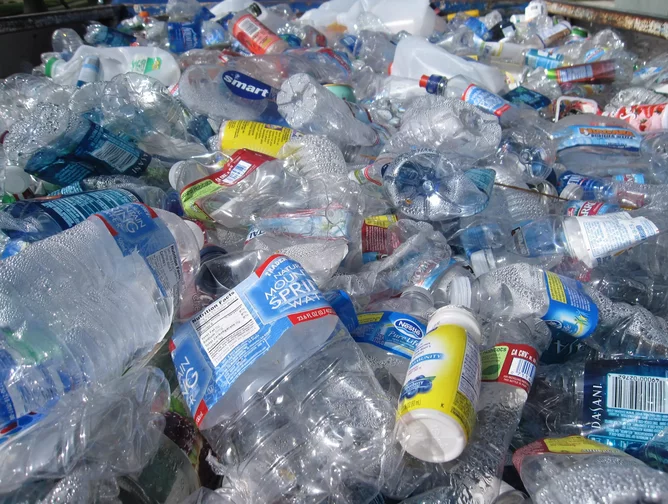
Plastic waste has become a global environmental concern, with millions of tons of plastic ending up in landfills and oceans every year. To address this issue, countries around the world are taking steps to develop innovative recycling infrastructure for plastic waste. These efforts aim to reduce the amount of plastic waste that is generated and find sustainable solutions for its management.
One key aspect of developing recycling infrastructure is the establishment of collection systems. This involves setting up recycling bins and centers where individuals can dispose of their plastic waste. These collection systems should be easily accessible and promote proper disposal of plastic waste. Incentives such as rewards or discounts can also encourage individuals to participate in recycling programs and properly separate their waste.
Once the plastic waste is collected, it needs to be sorted and processed. Innovative technologies and equipment are being developed to efficiently sort different types of plastic materials. This is crucial to ensure that the plastic waste can be properly recycled and used as raw materials in the production of new products. Efficient sorting also helps to minimize contamination and improve the quality of the recycled materials.
Recycling facilities play a vital role in the overall recycling process. These facilities should be equipped with advanced machinery and trained personnel to handle the sorting, cleaning, and processing of plastic waste. The aim is to maximize the recovery of usable materials from the waste, while minimizing the environmental impact of the recycling process.
Furthermore, countries are encouraging the development of innovative recycling technologies. These include chemical recycling, which breaks down plastic waste into its original building blocks, allowing for the creation of new plastic products. Other technologies focus on turning plastic waste into alternative fuel sources, such as synthetic fuels or gasification. These innovative recycling technologies provide additional options for managing plastic waste and reducing its environmental impact.
In conclusion, developing innovative recycling infrastructure for plastic waste is crucial in addressing the global plastic waste problem. It requires the establishment of efficient collection systems, advanced sorting and processing technologies, well-equipped recycling facilities, and the promotion of innovative recycling technologies. With these efforts, countries can better manage their plastic waste and contribute to a more sustainable future.
Government Initiatives and Policies on Plastic Waste Reduction
The issue of plastic waste has gained significant attention in recent years, leading governments around the world to implement various initiatives and policies to reduce its impact on the environment. Here are some notable efforts by countries that have proven to be effective in managing plastic waste:
Australia
Australia has taken multiple steps to address plastic waste. The government has banned single-use plastic bags in several states and territories, resulting in a significant decrease in the consumption of plastic bags. The introduction of container deposit schemes has also encouraged recycling, with a higher rate of recycling and reduced littering.
Canada
Canada has put in place regulations and initiatives to tackle plastic waste. The federal government has announced a plan to ban single-use plastics, such as straws, cutlery, and bags, by 2021. Additionally, various provinces have implemented extended producer responsibility programs, requiring companies to take responsibility for the entire lifecycle of their products, including plastic packaging.
Germany
Germany is known for its strong waste management system. The country has implemented a dual system for waste collection and recycling, which includes separate bins for different types of waste. The government has also introduced policies to reduce packaging waste, promote the use of reusable products, and increase the recycling rate of plastic materials.
These are just a few examples of government initiatives and policies on plastic waste reduction. Many other countries, including the Netherlands, Norway, and New Zealand, have also taken significant steps to address this pressing issue. It is through the collective efforts of governments, businesses, and individuals that we can effectively manage plastic waste and protect our environment for future generations.
Public Awareness and Education: Promoting Responsible Plastic Waste Management
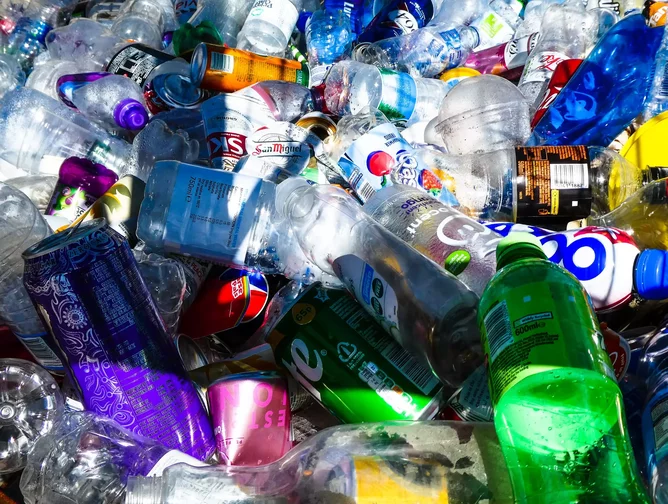
Public awareness and education play a critical role in promoting responsible plastic waste management in countries around the world. By educating individuals about the environmental impact of plastic waste and the importance of proper disposal, we can empower communities to take action and make a positive change.
One effective way to promote public awareness is through educational campaigns and initiatives. These can include public service announcements, educational materials, and workshops that provide information about the harmful effects of plastic waste on our ecosystems and wildlife. By raising awareness about the negative consequences of improper waste management, we can encourage individuals to make more sustainable choices in their daily lives.
In addition to raising awareness, educating the public about plastic waste management strategies is crucial. This includes teaching individuals about recycling, reducing single-use plastics, and advocating for more sustainable alternatives. By providing practical knowledge and resources, we can empower individuals to make informed decisions and take positive action.
Schools and educational institutions also play a vital role in promoting responsible plastic waste management. By incorporating environmental education into the curriculum, we can instill sustainable values in future generations. This can include lessons on the importance of recycling, the impact of plastic pollution, and the benefits of reducing plastic waste. By educating the youth, we can create a more environmentally conscious society for the future.
To effectively promote responsible plastic waste management, partnerships between the government, businesses, and non-profit organizations are essential. By working together, these stakeholders can develop comprehensive education campaigns and initiatives that reach a wide audience. This collaboration can also lead to the implementation of policies and regulations that support responsible waste management practices.
In conclusion, public awareness and education are crucial in promoting responsible plastic waste management. By educating individuals about the environmental impact of plastic waste and providing them with the knowledge and resources to make sustainable choices, we can work towards a cleaner and healthier future for our planet.
International Collaboration: Sharing Best Practices for Plastic Waste Management
Plastic waste is a global issue that affects all countries, regardless of their level of development. In order to effectively address this problem, international collaboration and the sharing of best practices are crucial. By pooling together knowledge and experiences, countries can learn from each other and develop effective strategies to manage plastic waste.
One example of successful international collaboration is the Global Plastic Action Partnership (GPAP). This initiative, launched by the World Economic Forum, brings together governments, businesses, and civil society organizations to find innovative solutions to plastic waste. Through the GPAP, countries can share their best practices and learn from successful initiatives implemented around the world.
Another important platform for international collaboration on plastic waste management is the United Nations Environment Programme (UNEP). The UNEP works with governments, industry, and civil society to promote sustainable waste management practices. It provides technical assistance, knowledge exchange, and capacity-building programs to help countries develop effective systems for plastic waste management.
In addition to these formal platforms, many countries engage in bilateral or regional collaborations to tackle plastic waste. They exchange information on policies, regulations, and technologies that have proven to be effective in reducing plastic pollution. These collaborations often involve joint research projects, training programs, and the sharing of best practices.
International collaboration also extends to funding mechanisms for plastic waste management projects. Global funds, such as the Green Climate Fund and the Global Environment Facility, provide financial support to countries for the implementation of sustainable waste management systems. These funds encourage collaboration and knowledge sharing among countries, as they require project proposals to demonstrate how they align with best practices and lessons learned from previous initiatives.
In conclusion, international collaboration plays a critical role in addressing the global plastic waste problem. By sharing best practices and pooling resources, countries can develop effective strategies for plastic waste management. These collaborations foster innovation, knowledge exchange, and capacity-building, ultimately leading to a more sustainable future for our planet.
The Economic Benefits of Effective Plastic Waste Management for the Country
Effective plastic waste management has numerous economic benefits for a country. Not only does it reduce the environmental impact of plastic pollution, but it also presents opportunities for economic growth and development in several key areas.
1. Job Creation
Investing in effective plastic waste management strategies can lead to the creation of new jobs in the recycling and waste management sectors. This can help reduce unemployment rates and provide a source of income for individuals in the country.
Moreover, the growth of the recycling industry can stimulate the economy by contributing to the creation of a circular economy, where materials are reused and turned into new products.
2. Cost Savings
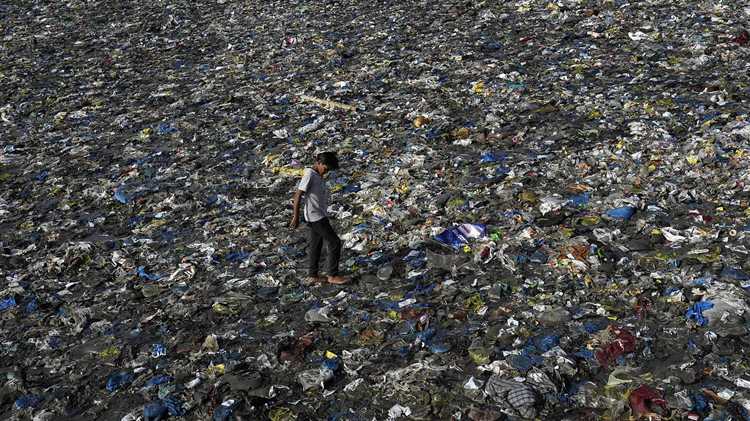
Implementing effective plastic waste management practices can lead to significant cost savings for the country. By reducing the amount of plastic waste that is sent to landfills or ends up in the environment, the government can save on waste disposal and cleanup costs.
Furthermore, recycling plastics can also save costs in the production of new materials. By using recycled plastics to manufacture new products, companies can reduce their reliance on virgin materials, which can be costly to extract and process.
3. Tourism and Image Enhancement
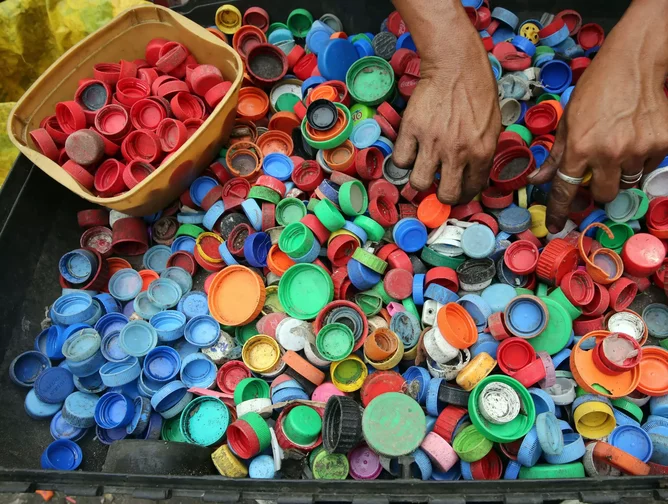
An effective plastic waste management system can enhance a country’s image and attract tourists. A clean and well-maintained environment demonstrates a commitment to sustainability and can make a positive impression on visitors.
Many tourists today prioritize destinations that prioritize environmental conservation and sustainability. By effectively managing plastic waste, a country can position itself as an eco-friendly and responsible tourist destination, attracting visitors and generating revenue from tourism.
In conclusion, effective plastic waste management has significant economic benefits for a country. It creates jobs, reduces costs, and enhances a country’s image, thus contributing to economic growth and development.
Question-answer:
Which country is the top country with the most effective plastic waste management?
The top country with the most effective plastic waste management is Germany.
How does Germany manage its plastic waste effectively?
Germany manages its plastic waste effectively through a combination of strict recycling regulations, advanced waste sorting technologies, and public awareness campaigns.
What are some examples of the recycling regulations in Germany?
Some examples of recycling regulations in Germany include mandatory separate collection of recyclable materials, such as plastic, paper, and glass, and the deposit scheme for plastic bottles.
Are there any penalties for not adhering to the recycling regulations in Germany?
Yes, there are penalties for not adhering to the recycling regulations in Germany. Individuals may face fines, while businesses may face stricter penalties and even closure for repeated violations.
How successful have public awareness campaigns been in Germany?
Public awareness campaigns in Germany have been quite successful in educating the population about the importance of plastic waste management. This has led to increased participation in recycling programs and a reduction in plastic waste.
Which country has the most effective plastic waste management?
The top country with the most effective plastic waste management is Germany.
